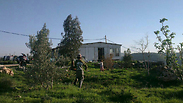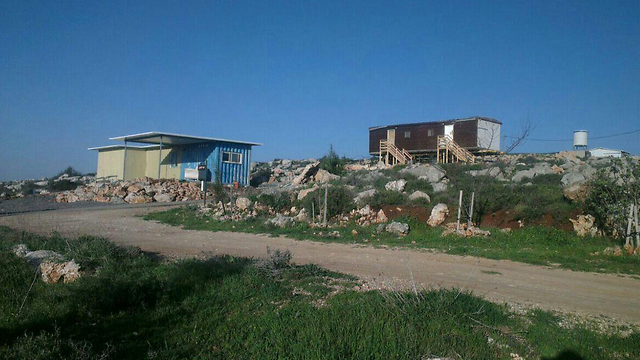
Tapuah
צילום: TPS
Confusion on right, left about court ruling on settlement outpost
High Court rules only 17 homes from the illegal West Tapuah outpost in the West Bank need to be removed by June 2018, as rest of outpost is on state land.
Settlement watchdogs, advocates and even residents themselves were split about the significance of a government agreement Tuesday, to remove 17 homes from the illegal West Tapuah outpost by June 2018.
The High Court of Justice also ruled that the rest of the West Bank outpost does not have to be demolished because it is on state land.
The agreement stems from a 2015 petition by the legal NGO Yesh Din on behalf of residents of Yasuf, an Arab village adjacent to the outpost, who claim that the homes were built on village lands. In addition, the homes were built without building permits.
Israel Radio reported that the court ordered the demolition of the unapproved buildings, but spokesmen for both Yesh Din and Justice Minister Ayelet Shaked refuted that point.
"This ruling is a great mark of success for the settlement movement because the court didn't order the community to be demolished," a spokeswoman for Shaked told Tazpit Press Service (TPS). "The court ruled that 17 caravans, homes to seven families that are currently situated on land that has not been designated as state land will have to move in a year-and-a-half.
"But the rest of the community has been legalized. The 17 caravans that are currently not located on state lands will move several meters, and the rest of the community has been legalized. Building there will continue, and the community will continue to flourish from here forward."
Yesh Din agreed, albeit from the opposite side of the political spectrum.
"Of course, we feel it is a positive move to remove the buildings that are built on private land," said Gilad Grossman, spokesman and Director of Media Department for Yesh Din. "We brought this case for two reasons: One, because the caravans were placed on private land, and two, because the residents of West Tapuah have a long history of violence against neighboring Palestinian villages.
"But we expect the state to remove all Israeli building on Palestinian land, and not just to move a few buildings and declare the rest of the settlement 'state land,' Grossman said.
Notably, residents of the area were far from satisfied both with the ruling and with yesterday's passing of the Regulation Bill. They say the new law is little more than a frustrating attempt to avoid making clear policy decisions about the future of Israeli settlement in the area.
"The Netanyahu-Bennet government is a disgrace," said one resident of Tapuah, the "parent settlement" of West Tapuah. "They've sat on their hands on the issue of Israeli sovereignty in Judea and Samaria for too long. Yesterday, Amona, today West Tapuah. Jewish families in the heartland of Israel should not have their homes demolished by the State of Israel.
"It is time for the Israeli public to rethink our blind support for these two parties who have proven to be a huge disappointment. We must make Israel great again," Ha'Ivri said.
In a rare move, the court backed up the agreement with a ruling requiring the state to adhere to the terms of the agreement because of previous instances where the state has refused to implement an agreement on settlement-related issues.
Article reprinted with permission from TPS











